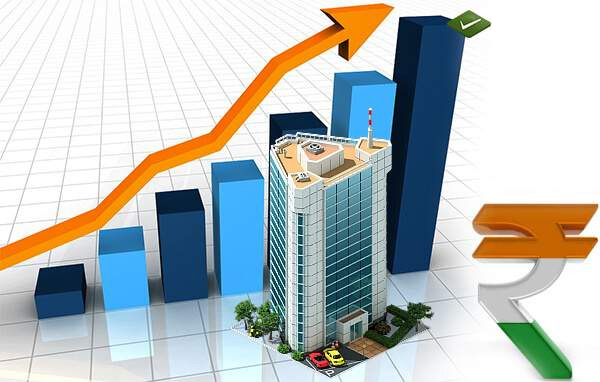


Goods and Service Tax GST may bring a lot of relief to the real estate sector. Supply chain mechanism in real estate sector to be revamped after implementation of GST.
Real estate sector is one of the most pivotal sectors of the Indian economy. Real estate sector plays a vital role in employment generation in India. It ranks second just behind agriculture. The importance of Real estate sector can be understood with its average 5-6% GDP contribution and stimulating demand for more than 250 ancillary industries.
The real estate sector had a substantial growth of 22% in its private equity investments from 2015 to 2016. At the time of the third quarter of 2016, there was a 9% increase in investment for residential properties from the previous quarter.
GST would bring a lot of transparency in the real estate sector and minimize unscrupulous transactions. Under the current tax laws, VAT and Service tax charged by different Contractors and excise duty, entry tax, octroi is paid on the procurements. GST law will increase the margin in the hands of contractor/developer by removing all the above-mentioned taxes. Now whether this benefit gets passed on to the end-consumer is unsure as pricing of real estate is driven by market forces than on costing principles.
Real estate sector enjoys a lot of benefits from facilities in SEZ and same are expected to be carried forward in GST. GST will help in filling the overwhelming gaps currently existing under the supply chain management process.
There will be many projects of developers which would require the transition from current tax laws onto GST. GST model law did not specify any provisions for the transition.
Currently, the sale of land and buildings have been kept out of the ambit of GST but it is expected to be taxed within a period of a year. Construction of land and building will benefit from the rates declared for cement, bricks, and iron under GST.
Cement will be taxed at the rate of 28% under GST. It is higher the current average rate of tax around 23-24% but a lot of additional taxes charged over the average rate would be subsumed under GST. Iron rods and pillars used in the construction of buildings is charged at the rate of 18% which is similar to the current average rate of 19.5%.
Bricks used in the construction of buildings and houses is taxed under GST at the rate of 28% except for the rate of ceramic building bricks which is kept under 5%. Currently, all bricks except the ceramic bricks are charged an average tax rate of 25-26% inclusive of all state and central level taxes. Logistics cost of transportation of bricks, cement or iron is going to reduce through the subsuming and streamlining of taxes.
In Real estate sector, there is a huge percentage of each project expenditure goes unrecorded on the books currently. GST will cut down this percentage due to cloud storing of invoicing. Real estate sector will also benefit with new tax law having a positive effect on all ancillary industries.
TThe impact of GST on real estate sector is expected to be neutral under GST. Though still, there is going to be a substantial benefit from GST as it will bring a lot of required transparency and accountability. Developers/Contractors would reap the benefit of many taxes which will be subsumed by GST.
“Real estate sector should be happy with GST even if the rate declared is higher than current rate” Also read our article on impact of GST on rent.